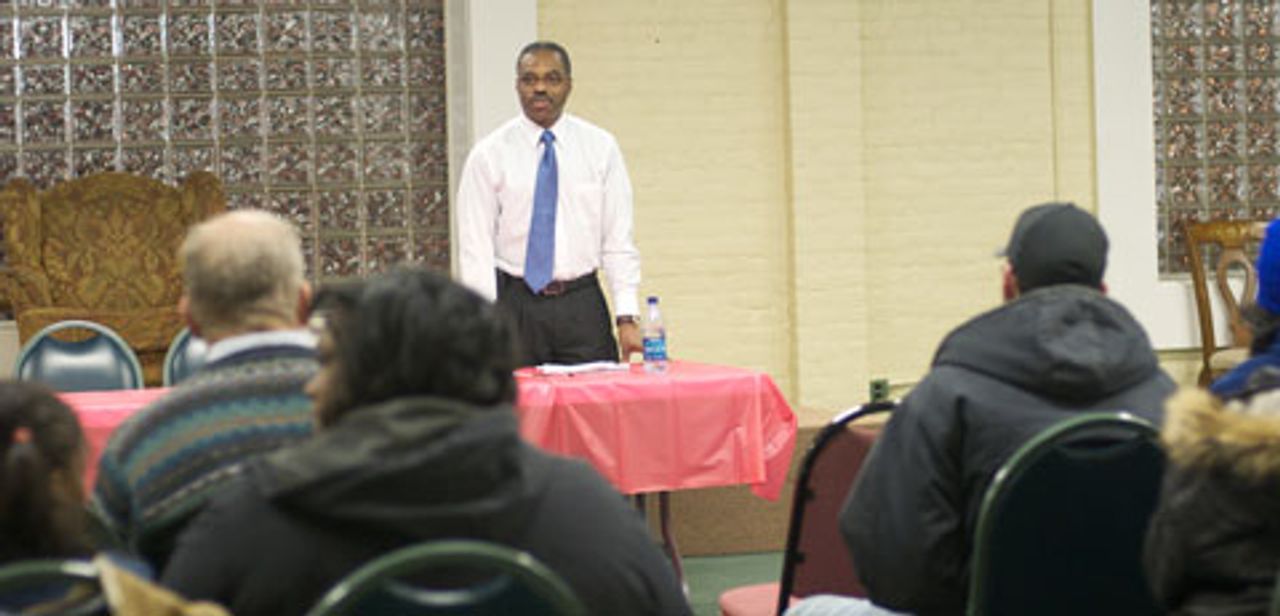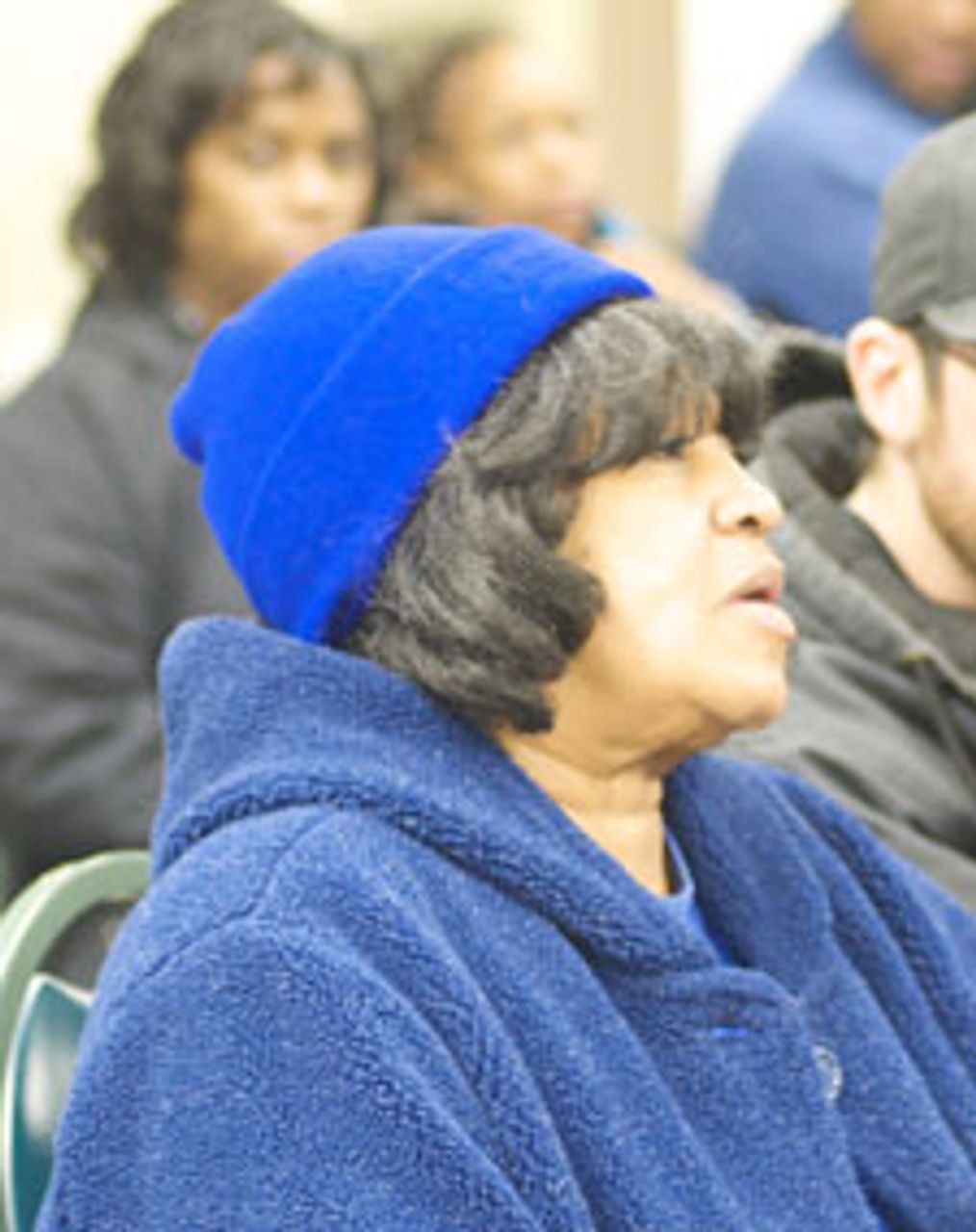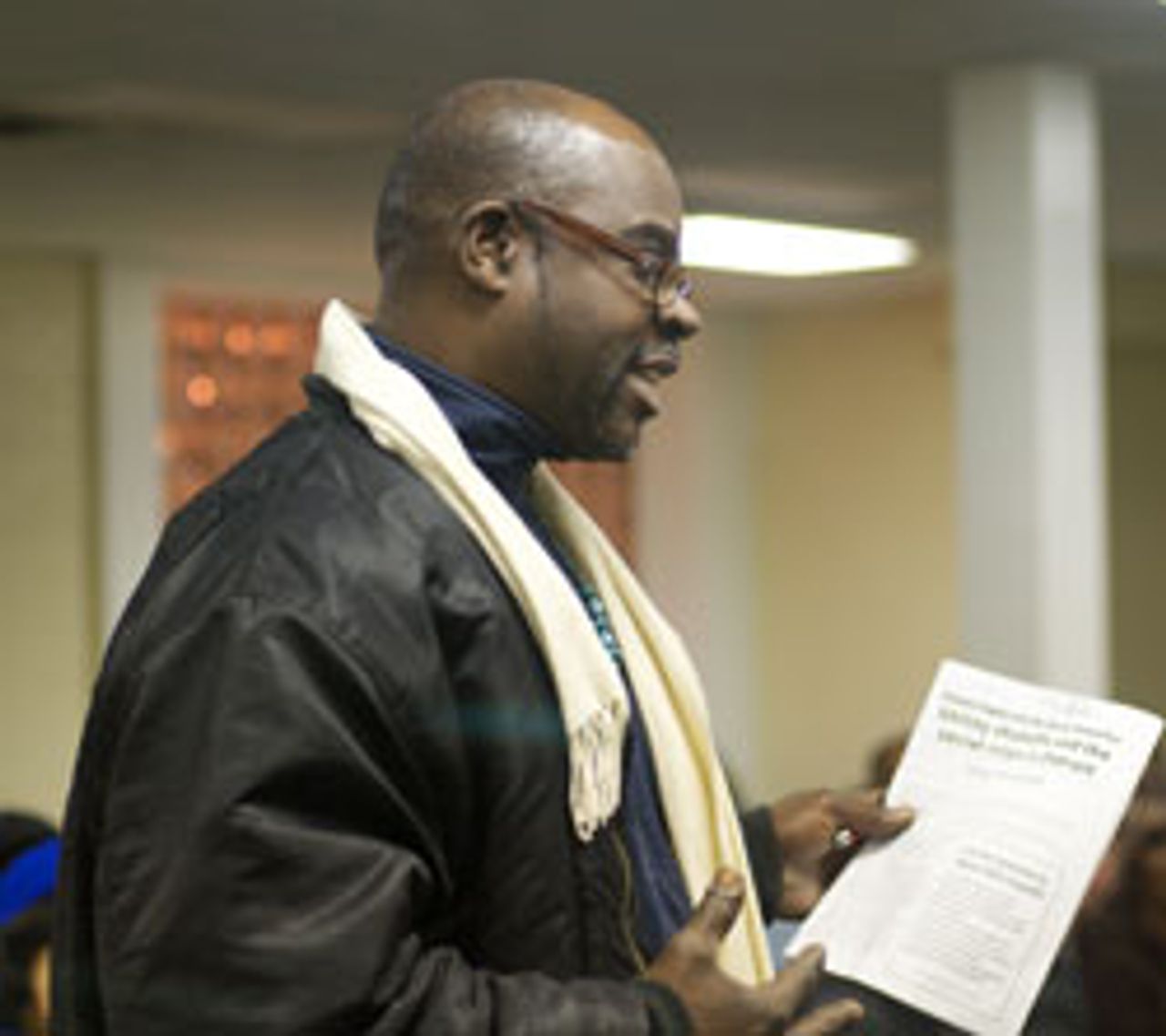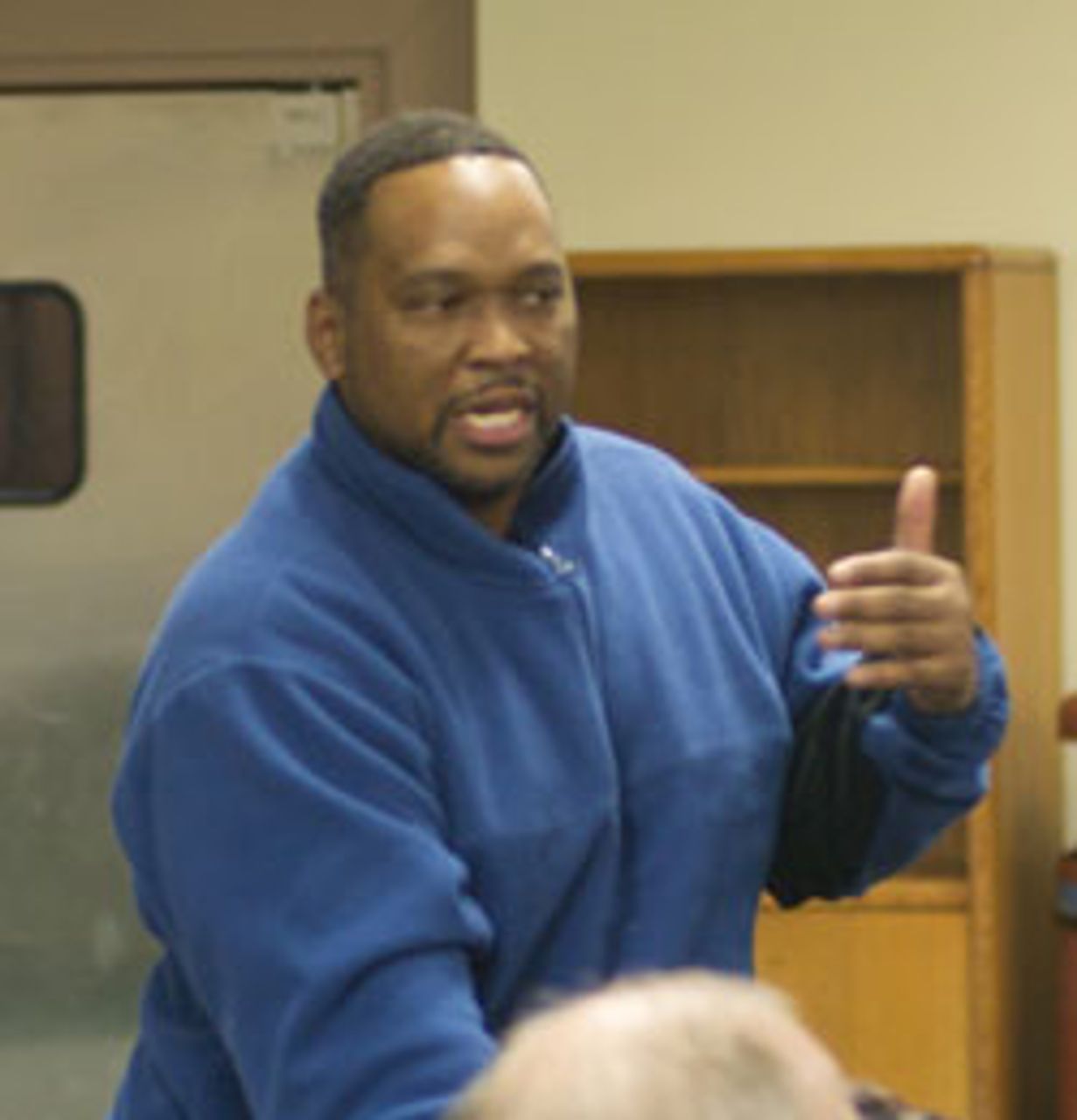Four days after DTE Energy held its “Customer Assistance Day” at Detroit’s Cobo Hall, the Committee Against Utility Shutoffs (CAUS) held a meeting in northwest Detroit to discuss the political issues related to the fight against utility shutoffs. (See: End all utility shutoffs! Electricity and gas must be a social right!) Among those in attendance were residents who have personal experience with having their utilities shut off by both Detroit Edison and the gas company Consumers Energy.
 Lawrence Porter addressing the meeting
Lawrence Porter addressing the meetingLawrence Porter, a CAUS member and writer for the World Socialist Web Site, addressed the meeting. “This meeting was called in response to the DTE ‘customer assistance’ stunt held Monday.” He explained that the real reason that the utility giant held the event was to make it appear that the company cared about the terrible conditions facing its customers. Secondly, Porter emphasized that DTE wanted to make sure its customers were eligible for government and charitable donations to pay their bills, so that the company could get its hands on this money.
As far as the amount of real help provided, Porter noted that most received only a pittance, if that, compared to their actual level of need. One CAUS member, Dorothea, who went to the event seeking assistance, was lied to by a DTE representative. She was told that the company would come out to her home later in the week to turn her electricity back on. Instead, a service technician came to turn off her gas. She is now living without any utilities. “Everything in the house is freezing,” Porter said. “The pipes in her house are now in danger of bursting, which could ruin her home.”
Porter cited DTE spokesman Scott Simons, who said that since the beginning of the year 200,000 homes had their service cut off by the utility company. Another 1.5 million people are facing shutoffs because they are in arrears on their payments. To illustrate the implications of these figures, Porter explained the circumstances that led to the founding of CAUS.
“Last January 5 a house fire in Detroit resulted in the deaths of three people, Tyrone and Marvin Allen, and Lynne Greer. More would have died, but Ronald Gross escaped by jumping out the second floor window on the advice of his uncle,” Porter recounted, noting that the blaze was started by a space heater being used because the family’s gas had been shut off. (See the WSWS report of the fire.) Altogether, there have been 11 fire deaths in Detroit resulting from utility shutoffs, including the death of three of the children of Sylvia Young in March.
“We hold DTE directly responsible for these deaths,” said Porter, explaining that CAUS rejects the notion that “illegal hookups” are the source of the danger. These hookups would not exist if the utility company did not terminate people’s service. Reading from the findings of the Citizens’ Inquiry into the Dexter Avenue Fire (the precursor to CAUS), Porter noted that it is widely known that that there is a direct connection between utility shutoffs and house fires.
He then reviewed the extensive political ties between DTE and those politicians who are ostensibly regulating its practices. Porter pointed out that the aggressive legislation recently passed against “illegal hookups” in Michigan was backed by several Democratic politicians who received sizable campaign contributions from DTE, including Tupac Hunter, Samuel “Buzz” Thomas, Dennis Olshove and Irma Clark-Coleman. (See “Michigan governor signs law witch-hunting workers for ‘energy theft’”.)
In addition to noting the relationship between DTE and Michigan’s Democratic Party, Porter also stressed that Washington has overseen a recent drastic cut in federal funding for home heating assistance―from $5.1 billion last year to $3.3 billion this season. In the meantime, trillions of dollars of public funds are given to the banks. “CAUS does not accept the lie that there is no money to help people,” Porter said.
 Doris
DorisThe discussion following the report was lively. Doris commented that from her personal experience, DTE’s “help” is more like a form of punishment. “The payment plans they put you on are not based on what you can afford, but on your highest bill. And the payment date they give you is not based on when you get your paycheck or anything else, but just a date they assign. If you miss a payment by one day, you’re off the budget plan and cannot get back on for another year. They you go into shutoff.”
“The payment plan should be made affordable to your income. People pay three, four and five hundred dollars a month to try to keep their children warm. Cynthia [a friend] has a bill of $200 a month when she only gets $600 a month in disability payments,” Doris stated.
 Jeff
JeffJeff asked, “How are these utilities regulated?” “This is criminal,” he said, “explaining that he was being double-billed by two companies because one of them claims he authorized additional service over the phone. “I got a bill from Direct Energy, as well as Consumers Energy. They added up to $3,000. Believe me. I never signed up to get two gas bills.”
Lisa explained her situation. “I had state mercy relief, but I still had to pay 20 percent of a $2,000 bill for them to put in a new meter and clear me of the bill from the previous tenant. That’s ridiculous.” She added, “But I’m not going to let my kids go without lights and gas. Period.”
There was quite a bit of discussion about how to take the campaign forward, in the course of which class issues were raised. CAUS members made the point that DTE’s policy of shutoffs is very conscious. They are aware of the fact that they are endangering people’s lives. The company has all the figures that show the consequences of its policy, as does Michigan’s governor.
 D'Artagnan Collier
D'Artagnan CollierCAUS member and former SEP mayoral candidate for, D’Artaganan Collier, spoke about the fact that the utilities crisis is not just a Detroit phenomenon. “This is happening everywhere in the world,” he said, noting recent events in India.
The possibility of launching a petition drive was raised. An SEP member responded, “But we have to think about who we would be petitioning. We certainly don’t want to tell workers that we can pressure DTE into halting shutoffs. It’s a question of deciding who is going to run things? Corporations who are driving this society into the ground, or the working class?” He raised the importance of making an appeal to DTE workers, not the company, to join the fight against shutoff and for public ownership and workers’ control of the utility industry.
Those attending also discussed other work that CAUS will be doing in the coming months. As Porter noted, “It’s guaranteed that there are going to be a lot of things happening, deaths and suffering, with this number of shutoffs.” The teenage daughter of one CAUS member said, “Whenever there’s a fire, wherever there is something happening, we have to be there. People have to hear about CAUS and know that we will always be speaking out.”
To find out more about CAUS and how you can join, click here.
